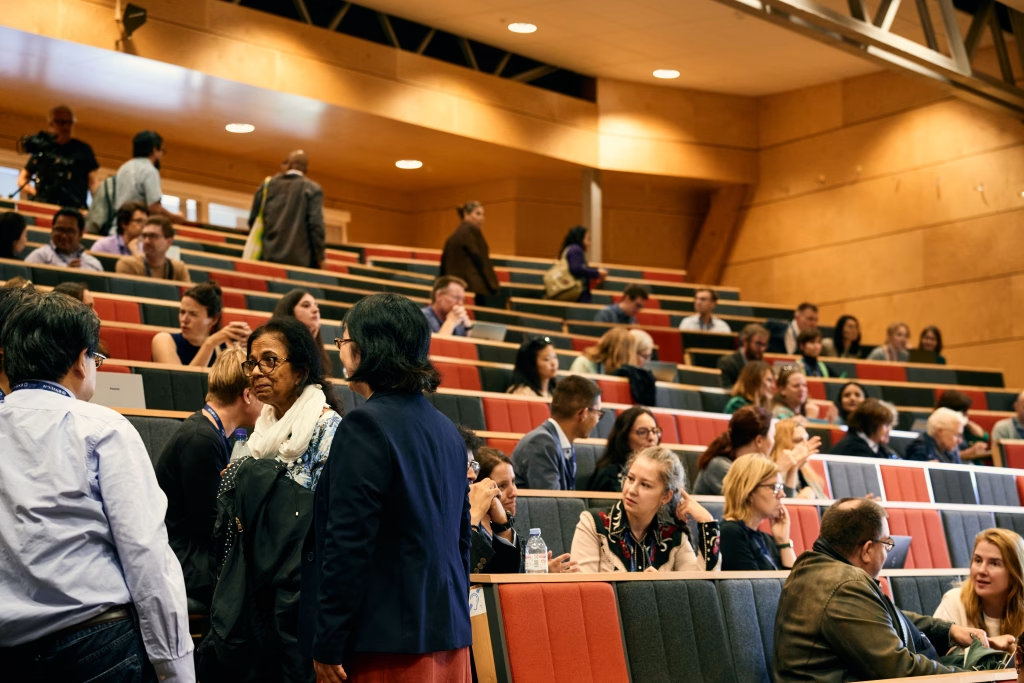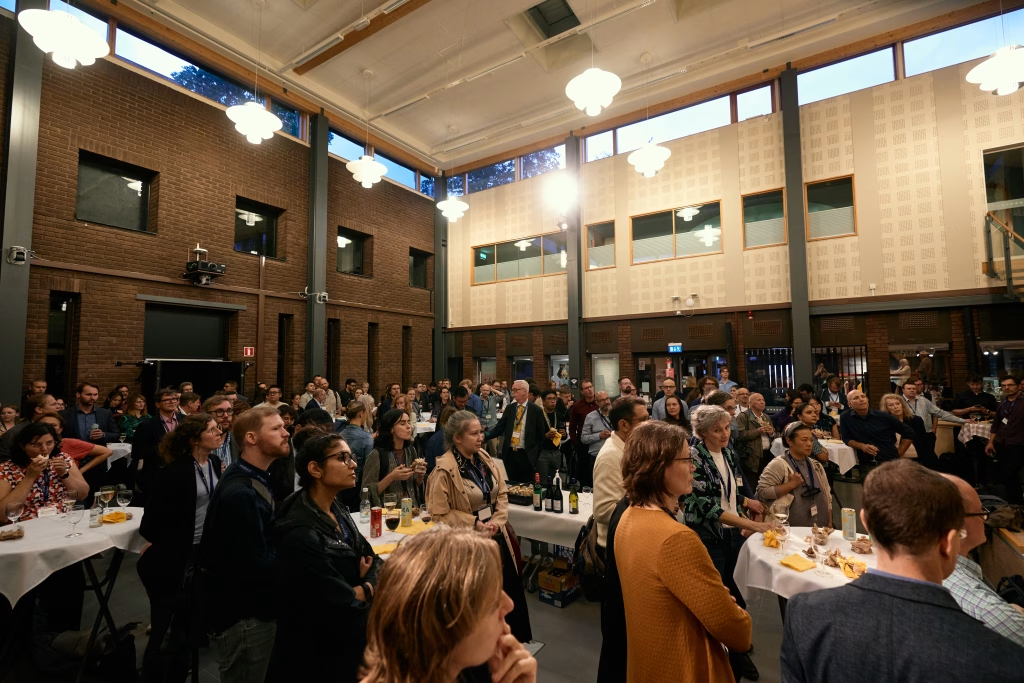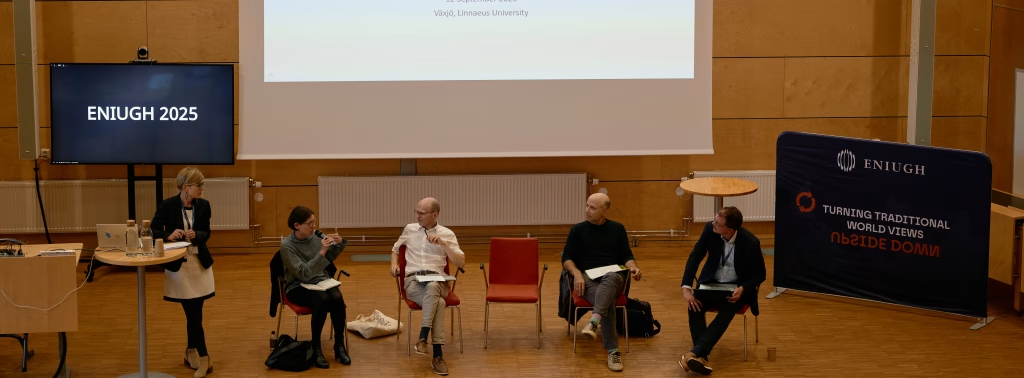Växjö 2025
Eighth European Congress on World and Global History
“Critical Global Histories: Methodological Reflections and Thematic Expansions”
Linnaeus University, Växjö, Sweden
10-12 September 2025
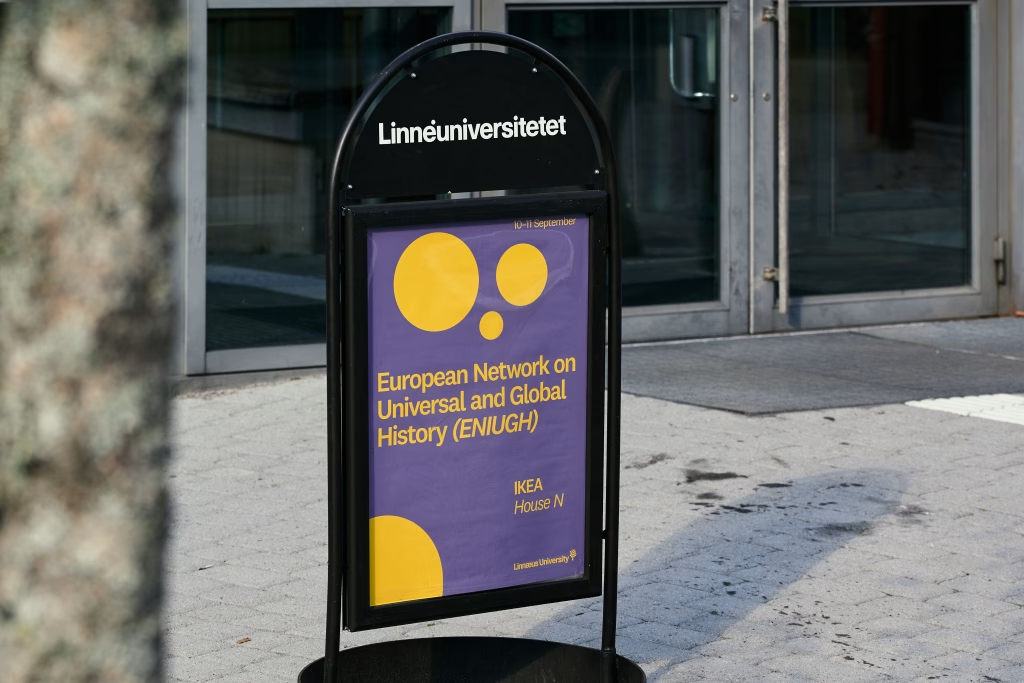
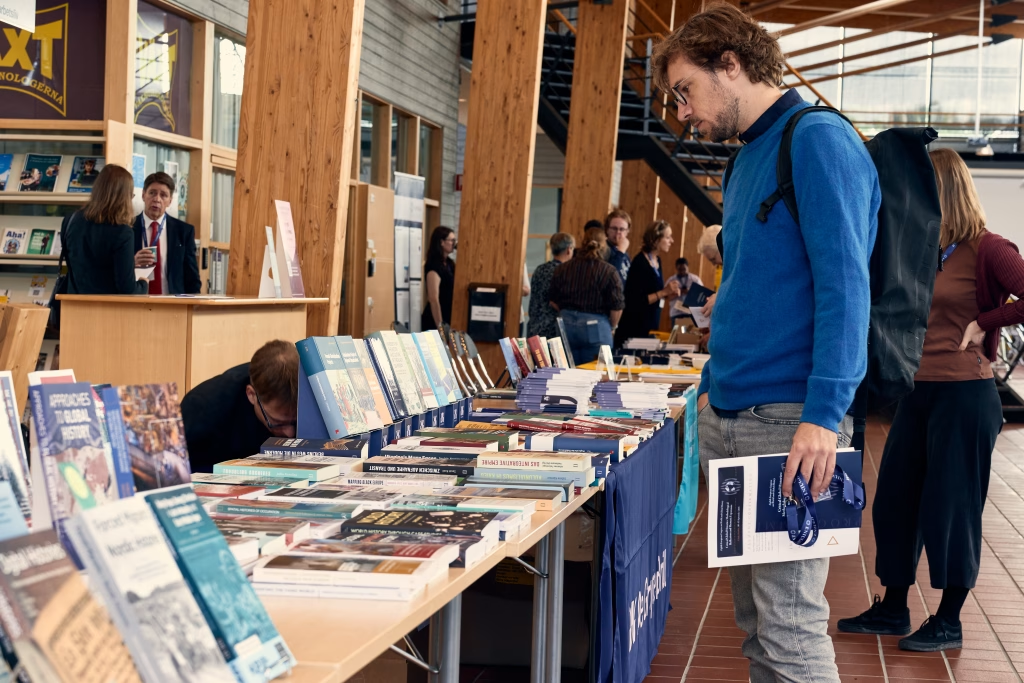
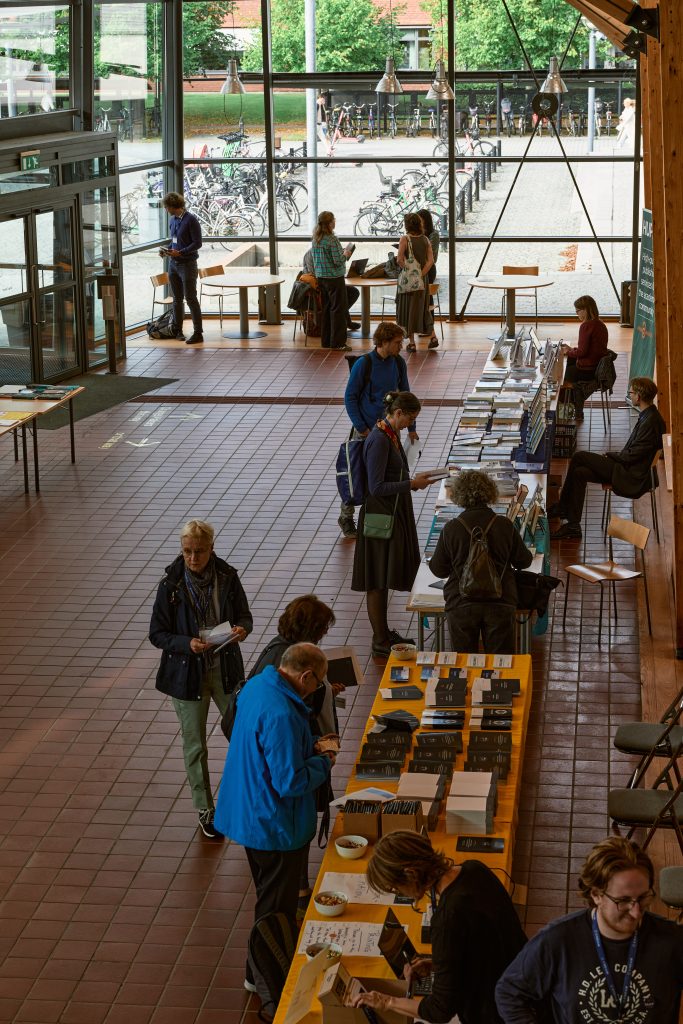
The eighth congress organized by the European Network in Universal and Global History (ENIUGH) brought together more than 400 scholars from all over the world to further discussion, self-reflection, and the exploration of new avenues in global history. In over 80 panels participants discussed how to develop global history as a field especially in the face of nationalist backlashes, the rise of right-wing movements around the world and new wars that challenge the international order as we know it. Panel discussions focused on how to make global history more inclusive by expanding the global archive and by making sure that new or previously marginalized voices are not only heard but are recognized in their potential to enrich as well as complete our understanding of transnational, regional, and global connections.
A series of special events throughout the congress were equally dedicated to furthering critical reflection, diversity and inclusivity in global history. First and foremost among them were the two keynote lectures by Laura de Mello e Souza and Fe/derico Navarrete. Fe/derico Navarrete explored “Cosmohistories, the multiplicity of worlds and their histories“ and presented cosmohistories as a concept that overcomes unilinear, Eurocentric and teleological perspectives on world histories by investigating historical communities as coexisting and colliding entities that refuse to conform to simplistic and homogenizing narratives. In her lecture on “Provisional Forms of Existence in Portuguese America – 16th-18th Centuries“ Laure de Mello e Souza showed how the blended knowledge of indigenous, African, and Portuguese actors shaped present-day Brazil. Both keynotes emphasized the multivocality and diversity but also the interdependency of diverse communities in history. The Plenary Session “Nordic Colonialism” convened by Janne Lahti similarly sought to overcome notions of exceptionalism and isolationist narratives by demonstrating how the Nordic countries were involved in and connected to global colonial history. Bringing these various strands of academic interests together the Closing Roundtable on “Publishing Global History” organized by Birgit Tremml-Werner and Daniel Laqua investigated how the publishing industry in Global History can become more inclusive both in terms of content as well as in terms of practicalities.
A new generation of global historians contributed to furthering the field during the International Summer School “Towards Inclusive Global Histories” that too place in the two days preceeding the congress. The summer school which was jointly organized by ENIUGH, the Global Diplomacy Network (GDN), Linnaeus University Center for Concurrences in Colonial and Postcolonial Studies (LNUC), and the Asian Center, University of the Philippines brought together 24 PhD students from all parts of the world. They spend three days debating how diverse voices and alternative archives can be successfully integrated into research of global histories.
We hope to continue all these discussions during the ninth ENIUGH congress which will take place in 2028.
